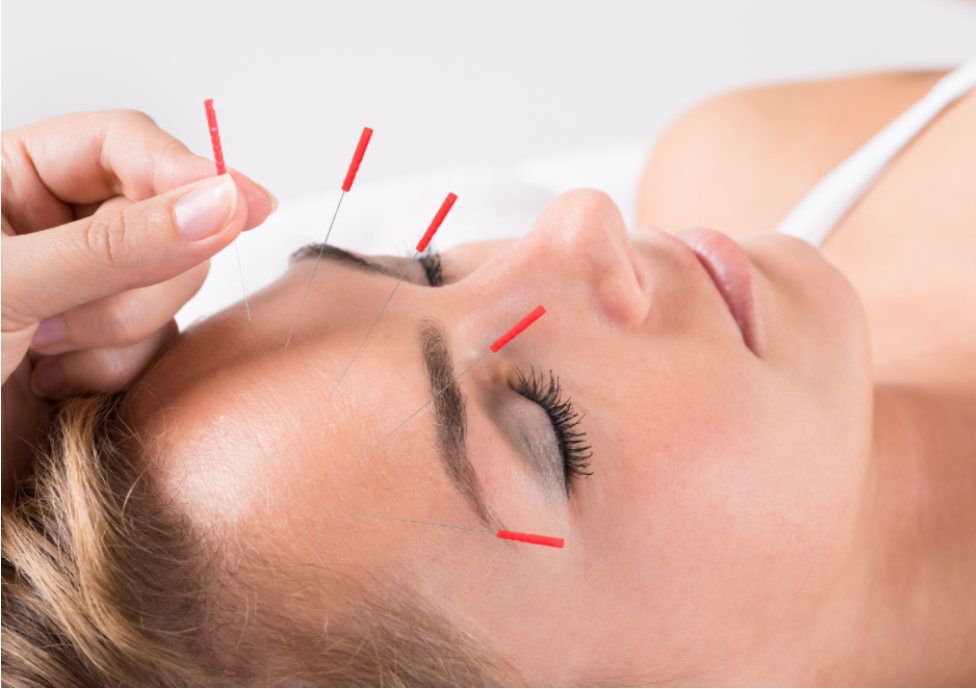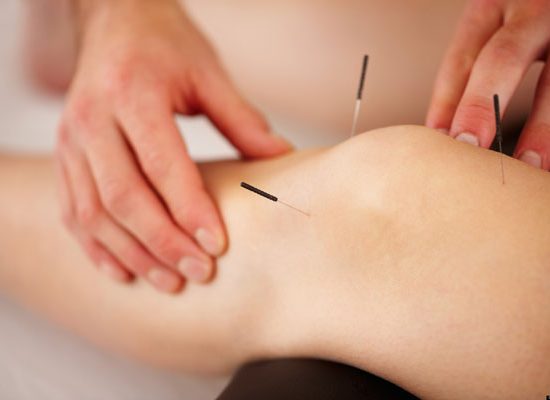Dry Needling

Dry Needling Therapy is also known as Trigger Point Dry Needling for Myofascial Trigger Point. Dry Needling is a process in which thin needles are inserted into the trigger points or tight muscles of the body. It is usually done to treat myofascial pain (Myo means Muscle and Fascia means Tissue that connects muscles). The main purpose is to improve Tissue Healing and Restore Muscle Functions.
Muscles in our body sometimes develop knotted areas called trigger points which are quite sensitive and can be painful when touched. Physiotherapists push thin solid needles through the skin into these trigger points. These needles are used to stimulate the tissue and not to inject the medication.
The patient may experience different sensations, muscle soreness, aching, a muscle twitch, etc. when being needled which is considered to be a good sign. The needles may be placed deeply or superficially, for shorter or longer periods depending upon the type of pain being treated.

Dry needling is known to help in :
➤ Low back pain/tension
➤ Neck pain
➤ Tennis elbow
➤ Migraines
➤ Spinal dysfunction
➤ Joint dysfunction
➤ Sciatica
➤ Disc Problems
➤ Tendinitis
➤ Jaw and Mouth Problems (Such as Temporomandibular Joint Disorders or TMJ)
➤ Repetitive Motion Disorders (Like Carpal Tunnel Syndrome)
➤ Pelvic Pains
➤ Night Cramps
Dry Needling Therapy should be avoided in the patients under the following circumstances:
➤ Abnormal Bleeding Tendency
➤ Compromised Immune System
➤ Vascular Disease
➤ Diabetes
➤ Pregnancy
➤ Children
➤ Frail Patients
➤ Patients with Epilepsy
➤ Psychological Status
What our Clients have to say
Frequently Asked Questions
How many dry needling sessions are usually needed?
Dry needling patients on average take 2-3 sessions. These are also done once or twice per week. More than 5-6 sessions are given only in rare circumstances.
Can dry needling make things worse?
Temporary pain during dry needling occurs in 60-70% of treatments. Existing symptoms can get worse after treatment (less than 3% of patients); however, this is not necessarily a “bad” sign. Fainting can occur in certain patients (0.3%), particularly at the first treatment session when needling the head or neck regions.
What should you do after dry needling?
It is highly recommended that one increases the water intake for 24 hours after treatment to help avoid or reduce soreness. We also recommend soaking in a hot bath or hot tub to help relieve post-treatment soreness and to alleviate the symptoms associated with the treatment received.
Is heat or ice better after dry needling?
Ice can be used to help decrease bruising and if one does not get relief then the treatment provider should be consulted. It is common to feel tired, nauseous, emotional, giggly or “loopy”, and/or somewhat “out of it” after treatment. This is a normal response that can last up to an hour or two after treatment.
What are the side effects of dry needling?
Dry needling side effects may include:
‣ Temporary Increase in Pain. This usually occurs 24 to 48 hours following treatment and may resolve on its own or with gentle activity or stretching of the area or light massage.
‣ Bruising or Bleeding.
‣ Fainting
‣ Fatigue and Tiredness.
‣ Skin Reactions.



